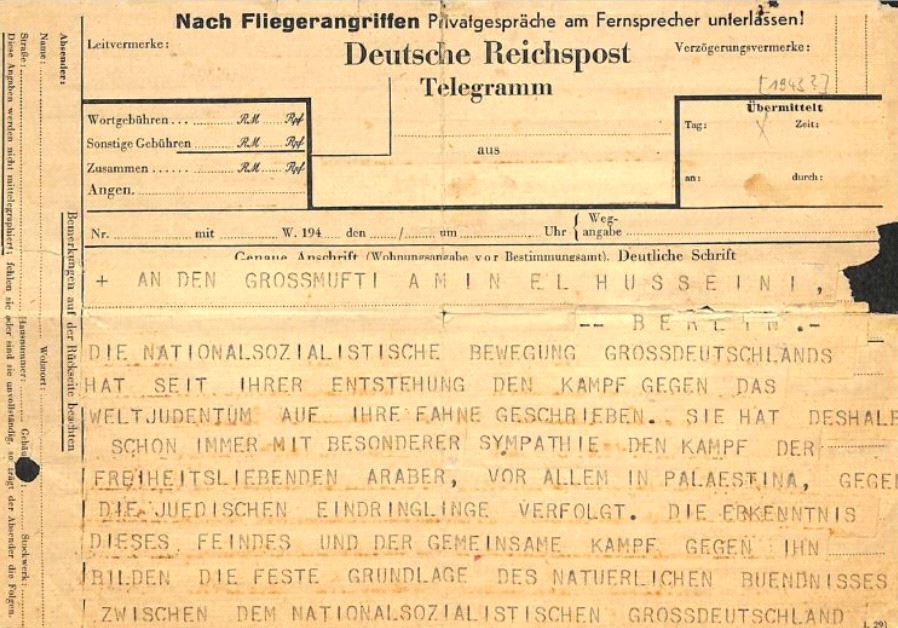Telegraphic reminders of reality
What is striking about this telegram is not its contents but rather how similar its sentiments are to those regularly voiced today.
 The telegram written by Himmler and sent to Jerusalem Mufti Haj Amin al-Husseini.(photo credit: NATIONAL LIBRARY OF ISRAEL)
The telegram written by Himmler and sent to Jerusalem Mufti Haj Amin al-Husseini.(photo credit: NATIONAL LIBRARY OF ISRAEL)